Trusted Knee Care in Greater Philadelphia
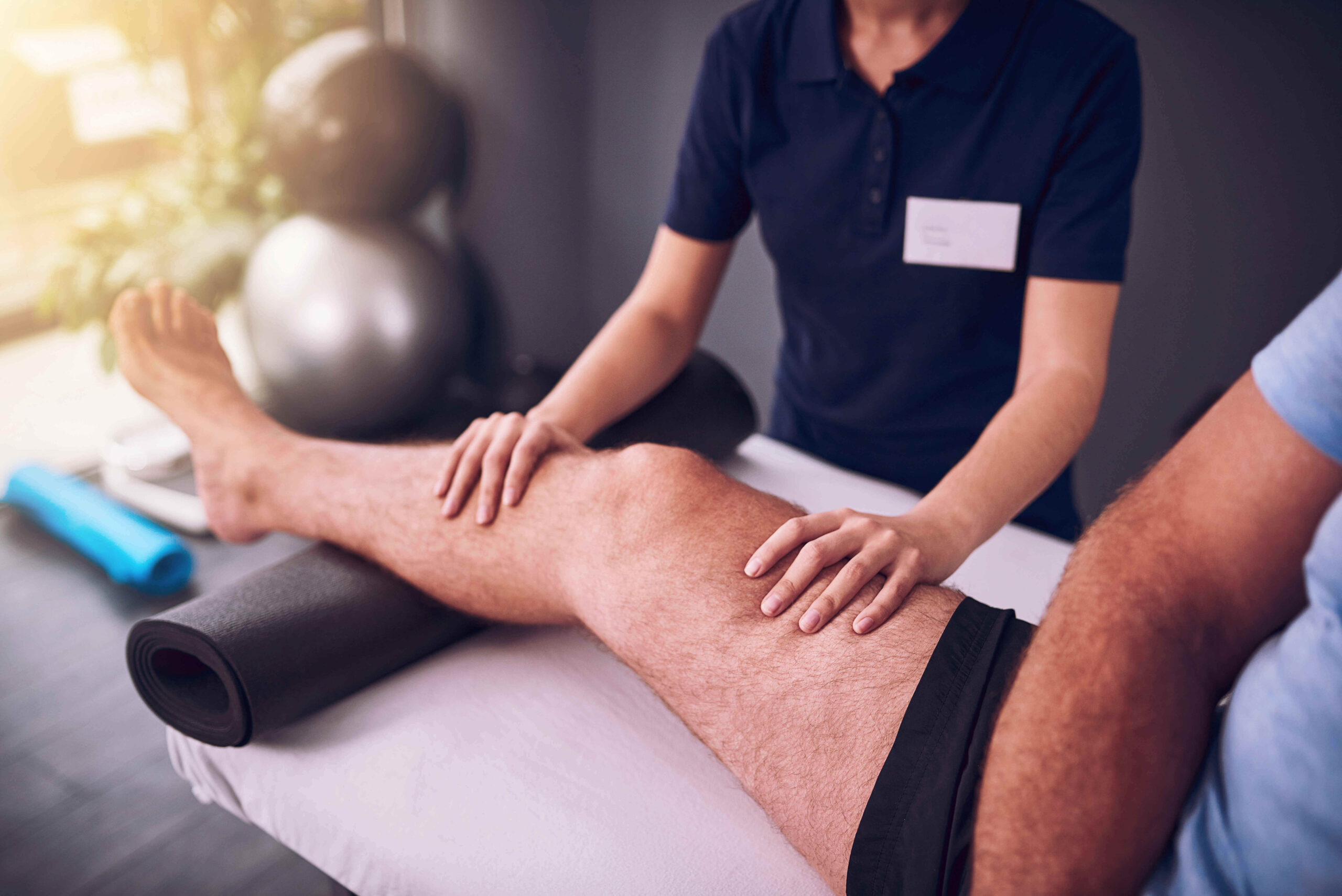
Those who suffer from knee pain may be reluctant to see an orthopedic specialist because they feel as though surgery may be their only solution. This is not always the case, and there are various ways in which your discomfort can be alleviated without surgical...
By Charles Hummer, M.D., orthopaedic surgeon at Premier The holidays are here! Between Thanksgiving and New Year's Day comes plenty of extra hustle-and-bustle, along with the winter elements of cold, snow, and ice. The combination of more people doing more things in a...
At Premier Orthopaedics we see thousands of patients like you each year. The trust they put in us fuels our drive to make their care more comfortable, more convenient, and most importantly, with the outstanding outcomes they expect. We also strive to make the process...
Knee pain is more common than you might think. In fact, it affects approximately 25% of adults. Whether the source of your discomfort is arthritis, old age, or the lingering effects of a past sports injury, the impact is often the same — difficulty walking, climbing stairs, and enjoying an active, fruitful lifestyle.
Fortunately, advances in orthopaedic knee care mean that most conditions and injuries can be managed effectively without the need for invasive procedures. Through rehabilitation, targeted exercise programs, medication, and therapeutic injections, many patients find relief. When conservative treatments are no longer effective, surgery can provide the necessary intervention to restore mobility and ease chronic pain.
At Premier Orthopaedics, our experienced knee specialists in the Greater Philadelphia area use advanced techniques and state-of-the-art equipment to help you regain function and return to the activities you love. If knee pain is limiting your life, schedule an orthopaedic consultation today and take the first step toward lasting relief.
Is It Time to Meet With a Knee Care Specialist?
Knee pain can creep up gradually or strike suddenly, so knowing when to seek professional help is key to living an uninterrupted life. Some signs that you may need orthopaedic knee care include:
- Persistent or worsening knee pain
- Swelling that does not subside with rest and ice
- Limited range of motion or difficulty straightening your knee
- Clicking, popping, or grinding sensations
- Knee instability or the feeling that your knee may “give out”
- Pain that interferes with sleep
- Difficulty bearing weight on the affected leg
Don’t ignore these warning signs. Left untreated, knee problems can lead to long-term damage and decreased mobility. Meeting with our knee specialists throughout the Greater Philadelphia area can help you better understand your condition and discover personalized treatment solutions.
Read More
We Treat a Range of Knee Conditions & Injuries
At Premier Orthopaedics, our team of knee specialists addresses a wide array of conditions affecting patients of all ages and lifestyles. From sports injuries to degenerative diseases, we offer comprehensive knee care that targets the root cause of your pain or discomfort.
ACL and PCL Injuries
The anterior cruciate ligament (ACL) and posterior cruciate ligament (PCL) are critical for stabilizing the knee joint. Tears often occur during sports or sudden movements that involve pivoting or rapid stops. Unfortunately, ACL and PCL injuries can lead to instability, swelling, and difficulty bearing weight. Without proper care (often surgery and rehabilitation), these injuries can make even routine activities feel precarious and painful.
Arthritis
Arthritis, particularly osteoarthritis, is one of the most common causes of knee pain in adults. This degenerative condition gradually wears away the cartilage that cushions the joint, leading to stiffness, swelling, and chronic discomfort. Arthritis can make simple movements — like climbing stairs or walking — feel daunting, which is why our knee pain treatment plans focus on preserving joint function and reducing inflammation.
Fractures
Fractures in the knee can occur due to falls, accidents, or sports injuries. These breaks in the bone often result in immediate pain, swelling, and loss of function. For this reason, knee fractures require prompt and expert care. Visit our orthopedic urgent care center for proper treatment and to prevent long-term mobility issues.
Meniscus Tears
The meniscus acts as a shock absorber in the knee. When the meniscus is torn (usually during twisting motions or heavy lifting), the injury can cause sharp pain, swelling, and a locking sensation. Left untreated, it can lead to chronic knee instability and arthritis over time.
Tendonitis
Tendonitis, often referred to as “jumper’s knee,” occurs when the tendons surrounding the knee become inflamed from overuse. This condition causes localized pain and tenderness, especially during physical activity. Persistent tendonitis can interfere with sports, work, and everyday tasks.
Tendon Tears
Tendon tears, which may involve the patellar or quadriceps tendon, often result from trauma or sudden stress. These injuries can lead to difficulty straightening the knee, significant pain, and functional limitations. Surgical intervention is often necessary for complete tears.
Patellar Dislocations
A patellar dislocation occurs when the kneecap slips out of its normal position and can cause intense pain, swelling, and the inability to straighten the knee. Without proper treatment, dislocations can become recurrent and lead to further complications.
Chondral Defects
Chondral defects involve damage to the cartilage lining the knee joint. These defects can result from injury or degenerative changes and often cause pain, swelling, and catching or locking of the knee. Advanced orthopaedic knee care can help repair or regenerate cartilage to improve joint function.
Non-Surgical Treatment Options for Knees
Surgery is not always the first answer for knee pain. In fact, many patients achieve excellent results through non-surgical treatment options. Whenever possible, our orthopedic specialists take a conservative approach to care, focusing on therapies that promote healing and enhance mobility without the risks associated with surgery. Some of these non-surgical options include:
- Immobilization: Often, knee injuries can be treated with immobilization. Our team has the capability to provide custom knee braces and casts to promote healing and relieve symptoms.
- Physical Therapy: Physical therapy remains a cornerstone of knee care, as it strengthens the muscles surrounding the knee and improves flexibility. Our customized exercise programs can even target specific issues, such as instability or stiffness, and help prevent future injuries.
- Medication: Medication, including anti-inflammatory drugs and pain relievers, can manage symptoms and provide temporary relief.
- Injections: In more advanced cases, we may recommend injections. Corticosteroid injections, for example, offer quick and powerful anti-inflammatory effects, while platelet-rich plasma (PRP) therapy and other regenerative treatments harness the body’s natural healing abilities to promote tissue repair.
Our knee specialists in Greater Philadelphia work closely with you to monitor progress and adjust your treatment plan as needed, ensuring you receive the most effective care possible without surgery.
Surgical Knee Pain Treatment
When non-surgical methods fail to deliver lasting relief, surgical intervention may be necessary. At Premier Orthopaedics, our physicians and surgeons are skilled in performing a range of minimally invasive procedures and advanced surgeries aimed at restoring function and reducing pain.
With most cases, we will take advantage of the conservative nature of arthroscopic surgery. Through small incisions, we can repair torn ligaments, remove loose bodies, and even smooth damaged cartilage. For more severe cases, such as advanced arthritis or major injuries, partial or total knee replacement surgery may be recommended. These procedures involve replacing damaged portions of the knee with prosthetic components designed to mimic natural movement and alleviate chronic pain.
Regardless of which type of orthopedic surgery is necessary, we will use innovative techniques that minimize downtime, reduce scarring, and improve outcomes. After surgery, we offer comprehensive rehabilitation programs to help patients regain strength and return to their daily activities as quickly and safely as possible.
Call or Reach Out for Personalized Orthopaedic Knee Care
At Premier Orthopaedics, you are not just another patient laid out on a medical chart. You’re a friend, neighbor, coworker, and family member who deserves compassionate, expert care, and our specialists deliver just that.
From your initial consultation through every step of your recovery, we listen closely to your concerns, perform thorough examinations, and design treatment plans that suit your unique situation. Whether you require conservative treatment or advanced surgical care, know that we are here to guide you toward better health and mobility.
If knee discomfort is holding you back, contact Premier Orthopaedics today to find a specialist near you and schedule an appointment. Together, we will get you back to doing what you love — pain-free. In addition to knee conditions and injuries, we also treat problems related to feet, ankles, hips, spines, shoulders, elbows, wrists, and hands.
Frequently Asked Questions
What causes knee pain?
Knee pain can result from injuries, overuse, or chronic medical conditions. Common injuries include ligament tears (such as ACL injuries), meniscus tears, and fractures. Conditions like osteoarthritis, tendinitis, bursitis, and rheumatoid arthritis can also lead to chronic or acute knee pain.
How does physical therapy help with knee pain?
Physical therapy plays a vital role in pain management by strengthening the muscles around the joint, improving flexibility, and restoring proper movement patterns. The targeted exercises your physical therapist gives you can reduce stress on the knee and prevent further injury.
What is arthroscopic knee surgery?
Arthroscopic surgery is a minimally invasive procedure that uses a tiny camera and specialized instruments inserted through small incisions. This allows the surgeon to view, diagnose, and treat problems inside the knee joint with less disruption to surrounding tissues. With this surgical technique, patients usually experience quicker recovery times and less post-operative pain compared to open surgery.
How long does recovery take after knee surgery?
Recovery times vary depending on the type of surgery performed and individual factors like age, overall health, and adherence to rehabilitation. That said, arthroscopic procedures may have recovery periods of a few weeks, while total knee replacement may take several months. Remember to follow your post-operative care plan and attend physical therapy sessions for optimal recovery times and outcomes.

PHYSICIANLOCATIONS[pac_dth_taxonomy_list post_type="physicians" show_dynamic_taxonomies="on" show_taxonomy_image="off" show_taxonomy_button="off" taxonomies_column="1" disabled_on="on|on|off" admin_label="Locations" module_class="phy-loc-side"...

PHYSICIAN LOCATIONS [pac_dth_taxonomy_list post_type="physicians" show_dynamic_taxonomies="on" show_taxonomy_image="off" show_taxonomy_button="off" taxonomies_column="1" disabled_on="on|on|off" admin_label="Locations" module_class="phy-loc-side"...

PHYSICIANLOCATIONS[pac_dth_taxonomy_list post_type="physicians" taxonomy_physicians="loc-name" show_dynamic_taxonomies="on" show_taxonomy_image="off" show_taxonomy_button="off" taxonomies_column="1" disabled_on="on|on|off" admin_label="Locations"...
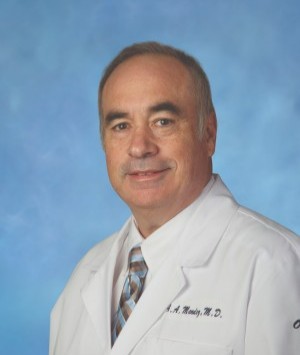
PHYSICIANLOCATIONS[pac_dth_taxonomy_list post_type="physicians" taxonomy_physicians="loc-name" show_dynamic_taxonomies="on" show_taxonomy_image="off" show_taxonomy_button="off" taxonomies_column="1" disabled_on="on|on|off" admin_label="Locations"...

PHYSICIANLOCATIONS[pac_dth_taxonomy_list post_type="physicians" show_dynamic_taxonomies="on" show_taxonomy_image="off" show_taxonomy_button="off" taxonomies_column="1" disabled_on="on|on|off" admin_label="Locations" module_class="phy-loc-side"...

PHYSICIANLOCATIONS[pac_dth_taxonomy_list post_type="physicians" taxonomy_physicians="loc-name" show_dynamic_taxonomies="on" show_taxonomy_image="off" show_taxonomy_button="off" taxonomies_column="1" disabled_on="on|on|off" admin_label="Locations"...
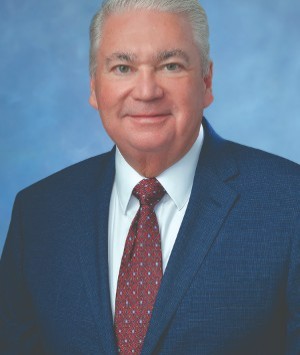
PHYSICIAN LOCATIONS [pac_dth_taxonomy_list post_type="physicians" show_dynamic_taxonomies="on" show_taxonomy_image="off" show_taxonomy_button="off" taxonomies_column="1" disabled_on="on|on|off" admin_label="Locations" module_class="phy-loc-side"...

PHYSICIANLOCATIONS[pac_dth_taxonomy_list post_type="physicians" taxonomy_physicians="loc-name" show_dynamic_taxonomies="on" show_taxonomy_image="off" show_taxonomy_button="off" taxonomies_column="1" disabled_on="on|on|off" admin_label="Locations"...

PHYSICIANLOCATIONS[pac_dth_taxonomy_list post_type="physicians" taxonomy_physicians="loc-name" show_dynamic_taxonomies="on" show_taxonomy_image="off" show_taxonomy_button="off" taxonomies_column="1" disabled_on="on|on|off" admin_label="Locations"...

PHYSICIANLOCATIONS[pac_dth_taxonomy_list post_type="physicians" taxonomy_physicians="loc-name" show_dynamic_taxonomies="on" show_taxonomy_image="off" show_taxonomy_button="off" taxonomies_column="1" disabled_on="on|on|off" admin_label="Locations"...

PHYSICIAN LOCATIONS [pac_dth_taxonomy_list post_type="physicians" show_dynamic_taxonomies="on" show_taxonomy_image="off" show_taxonomy_button="off" taxonomies_column="1" disabled_on="on|on|off" admin_label="Locations" module_class="phy-loc-side"...

PHYSICIANLOCATIONS[pac_dth_taxonomy_list post_type="physicians" taxonomy_physicians="loc-name" show_dynamic_taxonomies="on" show_taxonomy_image="off" show_taxonomy_button="off" taxonomies_column="1" disabled_on="on|on|off" admin_label="Locations"...

PHYSICIAN LOCATIONS [pac_dth_taxonomy_list post_type="physicians" show_dynamic_taxonomies="on" show_taxonomy_image="off" show_taxonomy_button="off" taxonomies_column="1" disabled_on="on|on|off" admin_label="Locations" module_class="phy-loc-side"...

PHYSICIANLOCATIONS[pac_dth_taxonomy_list post_type="physicians" show_dynamic_taxonomies="on" show_taxonomy_image="off" show_taxonomy_button="off" taxonomies_column="1" disabled_on="on|on|off" admin_label="Locations" module_class="phy-loc-side"...

PHYSICIANLOCATIONS[pac_dth_taxonomy_list post_type="physicians" taxonomy_physicians="loc-name" show_dynamic_taxonomies="on" show_taxonomy_image="off" show_taxonomy_button="off" taxonomies_column="1" disabled_on="on|on|off" admin_label="Locations"...

PHYSICIANLOCATIONS[pac_dth_taxonomy_list post_type="physicians" taxonomy_physicians="loc-name" show_dynamic_taxonomies="on" show_taxonomy_image="off" show_taxonomy_button="off" taxonomies_column="1" disabled_on="on|on|off" admin_label="Locations"...

PHYSICIANLOCATIONS[pac_dth_taxonomy_list post_type="physicians" taxonomy_physicians="loc-name" show_dynamic_taxonomies="on" show_taxonomy_image="off" show_taxonomy_button="off" taxonomies_column="1" disabled_on="on|on|off" admin_label="Locations"...

PHYSICIANLOCATIONS[pac_dth_taxonomy_list post_type="physicians" show_dynamic_taxonomies="on" show_taxonomy_image="off" show_taxonomy_button="off" taxonomies_column="1" disabled_on="on|on|off" admin_label="Locations" module_class="phy-loc-side"...

PHYSICIANLOCATIONS[pac_dth_taxonomy_list post_type="physicians" show_dynamic_taxonomies="on" show_taxonomy_image="off" show_taxonomy_button="off" taxonomies_column="1" disabled_on="on|on|off" admin_label="Locations" module_class="phy-loc-side"...

PHYSICIANLOCATIONS[pac_dth_taxonomy_list post_type="physicians" show_dynamic_taxonomies="on" show_taxonomy_image="off" show_taxonomy_button="off" taxonomies_column="1" disabled_on="on|on|off" admin_label="Locations" module_class="phy-loc-side"...

PHYSICIANLOCATIONS[pac_dth_taxonomy_list post_type="physicians" show_dynamic_taxonomies="on" show_taxonomy_image="off" show_taxonomy_button="off" taxonomies_column="1" disabled_on="on|on|off" admin_label="Locations" module_class="phy-loc-side"...

PHYSICIANLOCATIONS[pac_dth_taxonomy_list post_type="physicians" taxonomy_physicians="loc-name" show_dynamic_taxonomies="on" show_taxonomy_image="off" show_taxonomy_button="off" taxonomies_column="1" disabled_on="on|on|off" admin_label="Locations"...

PHYSICIANLOCATIONS[pac_dth_taxonomy_list post_type="physicians" show_dynamic_taxonomies="on" show_taxonomy_image="off" show_taxonomy_button="off" taxonomies_column="1" disabled_on="on|on|off" admin_label="Locations" module_class="phy-loc-side"...

PHYSICIANLOCATIONS[pac_dth_taxonomy_list post_type="physicians" show_dynamic_taxonomies="on" show_taxonomy_image="off" show_taxonomy_button="off" taxonomies_column="1" disabled_on="on|on|off" admin_label="Locations" module_class="phy-loc-side"...

PHYSICIANLOCATIONS[pac_dth_taxonomy_list post_type="physicians" show_dynamic_taxonomies="on" show_taxonomy_image="off" show_taxonomy_button="off" taxonomies_column="1" disabled_on="on|on|off" admin_label="Locations" module_class="phy-loc-side"...

PHYSICIANLOCATIONS[pac_dth_taxonomy_list post_type="physicians" show_dynamic_taxonomies="on" show_taxonomy_image="off" show_taxonomy_button="off" taxonomies_column="1" disabled_on="on|on|off" admin_label="Locations" module_class="phy-loc-side"...

PHYSICIANLOCATIONS[pac_dth_taxonomy_list post_type="physicians" taxonomy_physicians="loc-name" show_dynamic_taxonomies="on" show_taxonomy_image="off" show_taxonomy_button="off" taxonomies_column="1" disabled_on="on|on|off" admin_label="Locations"...

PHYSICIANLOCATIONS[pac_dth_taxonomy_list post_type="physicians" show_dynamic_taxonomies="on" show_taxonomy_image="off" show_taxonomy_button="off" taxonomies_column="1" disabled_on="on|on|off" admin_label="Locations" module_class="phy-loc-side"...

PHYSICIANLOCATIONS[pac_dth_taxonomy_list post_type="physicians" taxonomy_physicians="loc-name" show_dynamic_taxonomies="on" show_taxonomy_image="off" show_taxonomy_button="off" taxonomies_column="1" disabled_on="on|on|off" admin_label="Locations"...

PHYSICIANLOCATIONS[pac_dth_taxonomy_list post_type="physicians" show_dynamic_taxonomies="on" show_taxonomy_image="off" show_taxonomy_button="off" taxonomies_column="1" disabled_on="on|on|off" admin_label="Locations" module_class="phy-loc-side"...

PHYSICIANLOCATIONS[pac_dth_taxonomy_list post_type="physicians" show_dynamic_taxonomies="on" show_taxonomy_image="off" show_taxonomy_button="off" taxonomies_column="1" disabled_on="on|on|off" admin_label="Locations" module_class="phy-loc-side"...

PHYSICIANLOCATIONS[pac_dth_taxonomy_list post_type="physicians" show_dynamic_taxonomies="on" show_taxonomy_image="off" show_taxonomy_button="off" taxonomies_column="1" disabled_on="on|on|off" admin_label="Locations" module_class="phy-loc-side"...
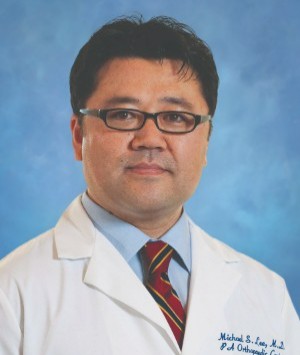
PHYSICIANLOCATIONS[pac_dth_taxonomy_list post_type="physicians" show_dynamic_taxonomies="on" show_taxonomy_image="off" show_taxonomy_button="off" taxonomies_column="1" disabled_on="on|on|off" admin_label="Locations" module_class="phy-loc-side"...
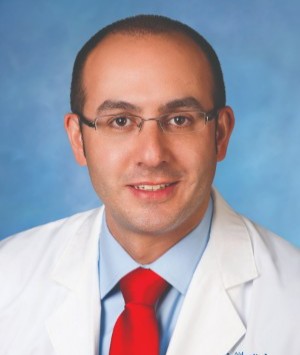
PHYSICIANLOCATIONS[pac_dth_taxonomy_list post_type="physicians" show_dynamic_taxonomies="on" show_taxonomy_image="off" show_taxonomy_button="off" taxonomies_column="1" disabled_on="on|on|off" admin_label="Locations" module_class="phy-loc-side"...

PHYSICIANLOCATIONS[pac_dth_taxonomy_list post_type="physicians" show_dynamic_taxonomies="on" show_taxonomy_image="off" show_taxonomy_button="off" taxonomies_column="1" disabled_on="on|on|off" admin_label="Locations" module_class="phy-loc-side"...
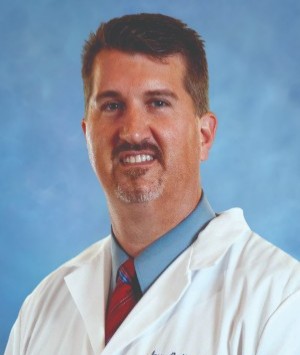
PHYSICIANLOCATIONS[pac_dth_taxonomy_list post_type="physicians" show_dynamic_taxonomies="on" show_taxonomy_image="off" show_taxonomy_button="off" taxonomies_column="1" disabled_on="on|on|off" admin_label="Locations" module_class="phy-loc-side"...

PHYSICIANLOCATIONS[pac_dth_taxonomy_list post_type="physicians" show_dynamic_taxonomies="on" show_taxonomy_image="off" show_taxonomy_button="off" taxonomies_column="1" disabled_on="on|on|off" admin_label="Locations" module_class="phy-loc-side"...

PHYSICIANLOCATIONS[pac_dth_taxonomy_list post_type="physicians" show_dynamic_taxonomies="on" show_taxonomy_image="off" show_taxonomy_button="off" taxonomies_column="1" disabled_on="on|on|off" admin_label="Locations" module_class="phy-loc-side"...

PHYSICIANLOCATIONS[pac_dth_taxonomy_list post_type="physicians" show_dynamic_taxonomies="on" show_taxonomy_image="off" show_taxonomy_button="off" taxonomies_column="1" disabled_on="on|on|off" admin_label="Locations" module_class="phy-loc-side"...

PHYSICIANLOCATIONS[pac_dth_taxonomy_list post_type="physicians" show_dynamic_taxonomies="on" show_taxonomy_image="off" show_taxonomy_button="off" taxonomies_column="1" disabled_on="on|on|off" admin_label="Locations" module_class="phy-loc-side"...

PHYSICIANLOCATIONS[pac_dth_taxonomy_list post_type="physicians" show_dynamic_taxonomies="on" show_taxonomy_image="off" show_taxonomy_button="off" taxonomies_column="1" disabled_on="on|on|off" admin_label="Locations" module_class="phy-loc-side"...

PHYSICIANLOCATIONS[pac_dth_taxonomy_list post_type="physicians" show_dynamic_taxonomies="on" show_taxonomy_image="off" show_taxonomy_button="off" taxonomies_column="1" disabled_on="on|on|off" admin_label="Locations" module_class="phy-loc-side"...

PHYSICAL THERAPISTLOCATIONS[pac_dth_taxonomy_list post_type="physicians" taxonomy_physicians="loc-name" show_dynamic_taxonomies="on" show_taxonomy_image="off" show_taxonomy_button="off" taxonomies_column="1" disabled_on="on|on|off" admin_label="Locations"...

PHYSICIANLOCATIONS[pac_dth_taxonomy_list post_type="physicians" show_dynamic_taxonomies="on" show_taxonomy_image="off" show_taxonomy_button="off" taxonomies_column="1" disabled_on="on|on|off" admin_label="Locations" module_class="phy-loc-side"...

PHYSICIANLOCATIONS[pac_dth_taxonomy_list post_type="physicians" show_dynamic_taxonomies="on" show_taxonomy_image="off" show_taxonomy_button="off" taxonomies_column="1" disabled_on="on|on|off" admin_label="Locations" module_class="phy-loc-side"...

PHYSICIAN LOCATIONS [pac_dth_taxonomy_list post_type="physicians" show_dynamic_taxonomies="on" show_taxonomy_image="off" show_taxonomy_button="off" taxonomies_column="1" disabled_on="on|on|off" admin_label="Locations" module_class="phy-loc-side"...

PHYSICIANLOCATIONS[pac_dth_taxonomy_list post_type="physicians" taxonomy_physicians="loc-name" show_dynamic_taxonomies="on" show_taxonomy_image="off" show_taxonomy_button="off" taxonomies_column="1" disabled_on="on|on|off" admin_label="Locations"...

PHYSICIANLOCATIONS[pac_dth_taxonomy_list post_type="physicians" show_dynamic_taxonomies="on" show_taxonomy_image="off" show_taxonomy_button="off" taxonomies_column="1" disabled_on="on|on|off" admin_label="Locations" module_class="phy-loc-side"...

PHYSICIANLOCATIONS[pac_dth_taxonomy_list post_type="physicians" taxonomy_physicians="loc-name" show_dynamic_taxonomies="on" show_taxonomy_image="off" show_taxonomy_button="off" taxonomies_column="1" disabled_on="on|on|off" admin_label="Locations"...

PHYSICIANLOCATIONS[pac_dth_taxonomy_list post_type="physicians" taxonomy_physicians="loc-name" show_dynamic_taxonomies="on" show_taxonomy_image="off" show_taxonomy_button="off" taxonomies_column="1" disabled_on="on|on|off" admin_label="Locations"...

PHYSICIANLOCATIONS[pac_dth_taxonomy_list post_type="physicians" show_dynamic_taxonomies="on" show_taxonomy_image="off" show_taxonomy_button="off" taxonomies_column="1" disabled_on="on|on|off" admin_label="Locations" module_class="phy-loc-side"...
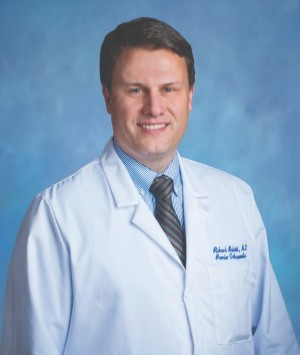
PHYSICIANLOCATIONS[pac_dth_taxonomy_list post_type="physicians" show_dynamic_taxonomies="on" show_taxonomy_image="off" show_taxonomy_button="off" taxonomies_column="1" disabled_on="on|on|off" admin_label="Locations" module_class="phy-loc-side"...

PHYSICIANLOCATIONS[pac_dth_taxonomy_list post_type="physicians" show_dynamic_taxonomies="on" show_taxonomy_image="off" show_taxonomy_button="off" taxonomies_column="1" disabled_on="on|on|off" admin_label="Locations" module_class="phy-loc-side"...

PHYSICIANLOCATIONS[pac_dth_taxonomy_list post_type="physicians" show_dynamic_taxonomies="on" show_taxonomy_image="off" show_taxonomy_button="off" taxonomies_column="1" disabled_on="on|on|off" admin_label="Locations" module_class="phy-loc-side"...

PHYSICIANLOCATIONS[pac_dth_taxonomy_list post_type="physicians" show_dynamic_taxonomies="on" show_taxonomy_image="off" show_taxonomy_button="off" taxonomies_column="1" disabled_on="on|on|off" admin_label="Locations" module_class="phy-loc-side"...

PHYSICIANLOCATIONS[pac_dth_taxonomy_list post_type="physicians" show_dynamic_taxonomies="on" show_taxonomy_image="off" show_taxonomy_button="off" taxonomies_column="1" disabled_on="on|on|off" admin_label="Locations" module_class="phy-loc-side"...

PHYSICIANLOCATIONS[pac_dth_taxonomy_list post_type="physicians" show_dynamic_taxonomies="on" show_taxonomy_image="off" show_taxonomy_button="off" taxonomies_column="1" disabled_on="on|on|off" admin_label="Locations" module_class="phy-loc-side"...

PHYSICIANLOCATIONS[pac_dth_taxonomy_list post_type="physicians" show_dynamic_taxonomies="on" show_taxonomy_image="off" show_taxonomy_button="off" taxonomies_column="1" disabled_on="on|on|off" admin_label="Locations" module_class="phy-loc-side"...

PHYSICIANLOCATIONS[pac_dth_taxonomy_list post_type="physicians" show_dynamic_taxonomies="on" show_taxonomy_image="off" show_taxonomy_button="off" taxonomies_column="1" disabled_on="on|on|off" admin_label="Locations" module_class="phy-loc-side"...

PHYSICIANLOCATIONS[pac_dth_taxonomy_list post_type="physicians" taxonomy_physicians="loc-name" show_dynamic_taxonomies="on" show_taxonomy_image="off" show_taxonomy_button="off" taxonomies_column="1" disabled_on="on|on|off" admin_label="Locations"...

PHYSICIANLOCATIONS[pac_dth_taxonomy_list post_type="physicians" taxonomy_physicians="loc-name" show_dynamic_taxonomies="on" show_taxonomy_image="off" show_taxonomy_button="off" taxonomies_column="1" disabled_on="on|on|off" admin_label="Locations"...

PHYSICIANLOCATIONS[pac_dth_taxonomy_list post_type="physicians" taxonomy_physicians="loc-name" show_dynamic_taxonomies="on" show_taxonomy_image="off" show_taxonomy_button="off" taxonomies_column="1" disabled_on="on|on|off" admin_label="Locations"...

PHYSICIANLOCATIONS[pac_dth_taxonomy_list post_type="physicians" show_dynamic_taxonomies="on" show_taxonomy_image="off" show_taxonomy_button="off" taxonomies_column="1" disabled_on="on|on|off" admin_label="Locations" module_class="phy-loc-side"...

PHYSICIANLOCATIONS[pac_dth_taxonomy_list post_type="physicians" show_dynamic_taxonomies="on" show_taxonomy_image="off" show_taxonomy_button="off" taxonomies_column="1" disabled_on="on|on|off" admin_label="Locations" module_class="phy-loc-side"...

PHYSICIANLOCATIONS[pac_dth_taxonomy_list post_type="physicians" taxonomy_physicians="loc-name" show_dynamic_taxonomies="on" show_taxonomy_image="off" show_taxonomy_button="off" taxonomies_column="1" disabled_on="on|on|off" admin_label="Locations"...

PHYSICIANLOCATIONS[pac_dth_taxonomy_list post_type="physicians" taxonomy_physicians="loc-name" show_dynamic_taxonomies="on" show_taxonomy_image="off" show_taxonomy_button="off" taxonomies_column="1" disabled_on="on|on|off" admin_label="Locations"...

PHYSICIANLOCATIONS[pac_dth_taxonomy_list post_type="physicians" taxonomy_physicians="loc-name" show_dynamic_taxonomies="on" show_taxonomy_image="off" show_taxonomy_button="off" taxonomies_column="1" disabled_on="on|on|off" admin_label="Locations"...

PHYSICIANLOCATIONS[pac_dth_taxonomy_list post_type="physicians" show_dynamic_taxonomies="on" show_taxonomy_image="off" show_taxonomy_button="off" taxonomies_column="1" disabled_on="on|on|off" admin_label="Locations" module_class="phy-loc-side"...

PHYSICIANLOCATIONS[pac_dth_taxonomy_list post_type="physicians" show_dynamic_taxonomies="on" show_taxonomy_image="off" show_taxonomy_button="off" taxonomies_column="1" disabled_on="on|on|off" admin_label="Locations" module_class="phy-loc-side"...

PHYSICIANLOCATIONS[pac_dth_taxonomy_list post_type="physicians" taxonomy_physicians="loc-name" show_dynamic_taxonomies="on" show_taxonomy_image="off" show_taxonomy_button="off" taxonomies_column="1" disabled_on="on|on|off" admin_label="Locations"...

PHYSICIANLOCATIONS[pac_dth_taxonomy_list post_type="physicians" show_dynamic_taxonomies="on" show_taxonomy_image="off" show_taxonomy_button="off" taxonomies_column="1" disabled_on="on|on|off" admin_label="Locations" module_class="phy-loc-side"...

PHYSICIANLOCATIONS[pac_dth_taxonomy_list post_type="physicians" show_dynamic_taxonomies="on" show_taxonomy_image="off" show_taxonomy_button="off" taxonomies_column="1" disabled_on="on|on|off" admin_label="Locations" module_class="phy-loc-side"...

PHYSICIANLOCATIONS[pac_dth_taxonomy_list post_type="physicians" show_dynamic_taxonomies="on" show_taxonomy_image="off" show_taxonomy_button="off" taxonomies_column="1" disabled_on="on|on|off" admin_label="Locations" module_class="phy-loc-side"...

PHYSICIANLOCATIONS[pac_dth_taxonomy_list post_type="physicians" show_dynamic_taxonomies="on" show_taxonomy_image="off" show_taxonomy_button="off" taxonomies_column="1" disabled_on="on|on|off" admin_label="Locations" module_class="phy-loc-side"...

PHYSICIANLOCATIONS[pac_dth_taxonomy_list post_type="physicians" show_dynamic_taxonomies="on" show_taxonomy_image="off" show_taxonomy_button="off" taxonomies_column="1" disabled_on="on|on|off" admin_label="Locations" module_class="phy-loc-side"...

PHYSICIANLOCATIONS[pac_dth_taxonomy_list post_type="physicians" taxonomy_physicians="loc-name" show_dynamic_taxonomies="on" show_taxonomy_image="off" show_taxonomy_button="off" taxonomies_column="1" disabled_on="on|on|off" admin_label="Locations"...

PHYSICIANLOCATIONS[pac_dth_taxonomy_list post_type="physicians" show_dynamic_taxonomies="on" show_taxonomy_image="off" show_taxonomy_button="off" taxonomies_column="1" disabled_on="on|on|off" admin_label="Locations" module_class="phy-loc-side"...

PHYSICIANLOCATIONS[pac_dth_taxonomy_list post_type="physicians" show_dynamic_taxonomies="on" show_taxonomy_image="off" show_taxonomy_button="off" taxonomies_column="1" disabled_on="on|on|off" admin_label="Locations" module_class="phy-loc-side"...

PHYSICIANLOCATIONS[pac_dth_taxonomy_list post_type="physicians" show_dynamic_taxonomies="on" show_taxonomy_image="off" show_taxonomy_button="off" taxonomies_column="1" disabled_on="on|on|off" admin_label="Locations" module_class="phy-loc-side"...

PHYSICIANLOCATIONS[pac_dth_taxonomy_list post_type="physicians" show_dynamic_taxonomies="on" show_taxonomy_image="off" show_taxonomy_button="off" taxonomies_column="1" disabled_on="on|on|off" admin_label="Locations" module_class="phy-loc-side"...

PHYSICIAN LOCATIONS [pac_dth_taxonomy_list post_type="physicians" show_dynamic_taxonomies="on" show_taxonomy_image="off" show_taxonomy_button="off" taxonomies_column="1" disabled_on="on|on|off" admin_label="Locations" module_class="phy-loc-side"...

PHYSICIANLOCATIONS[pac_dth_taxonomy_list post_type="physicians" taxonomy_physicians="loc-name" show_dynamic_taxonomies="on" show_taxonomy_image="off" show_taxonomy_button="off" taxonomies_column="1" disabled_on="on|on|off" admin_label="Locations"...
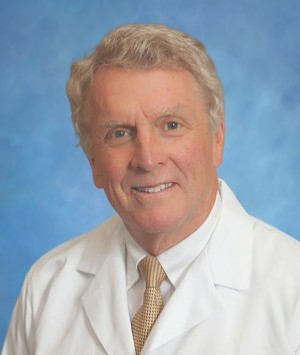
PHYSICIANLOCATIONS[pac_dth_taxonomy_list post_type="physicians" show_dynamic_taxonomies="on" show_taxonomy_image="off" show_taxonomy_button="off" taxonomies_column="1" disabled_on="on|on|off" admin_label="Locations" module_class="phy-loc-side"...

PHYSICIANLOCATIONS[pac_dth_taxonomy_list post_type="physicians" show_dynamic_taxonomies="on" show_taxonomy_image="off" show_taxonomy_button="off" taxonomies_column="1" disabled_on="on|on|off" admin_label="Locations" module_class="phy-loc-side"...

PHYSICIANLOCATIONS[pac_dth_taxonomy_list post_type="physicians" taxonomy_physicians="loc-name" show_dynamic_taxonomies="on" show_taxonomy_image="off" show_taxonomy_button="off" taxonomies_column="1" disabled_on="on|on|off" admin_label="Locations"...

PHYSICIANLOCATIONS[pac_dth_taxonomy_list post_type="physicians" taxonomy_physicians="loc-name" show_dynamic_taxonomies="on" show_taxonomy_image="off" show_taxonomy_button="off" taxonomies_column="1" disabled_on="on|on|off" admin_label="Locations"...
